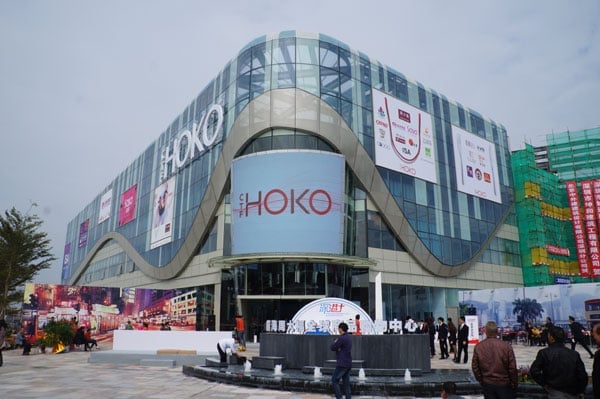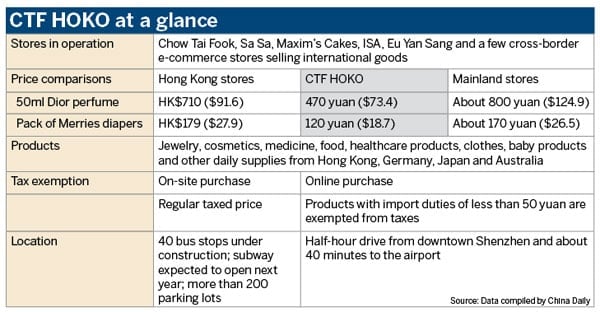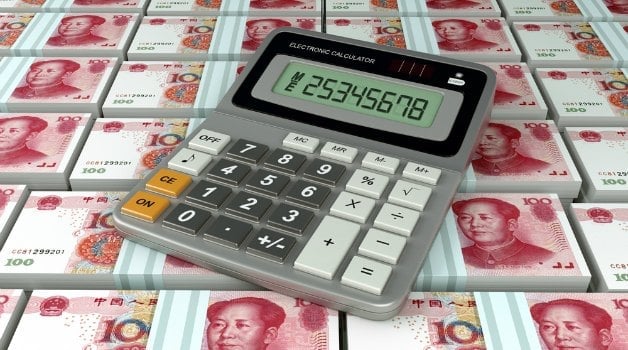Business in China at its finest
Shenzhen, the brainchild of former statesman Deng Xiaoping, and the PRC's first shot at creating an experimental ground for practice of market capitalism, is a modern day marvel that has far exceeded the expectations of everyone involved in bringing it to the heights it has achieved in its short history.Shenzhen is a magical place that has many reasons why it is such a hospitable place for starting a business in China, and that's why we've compiled an infographic with remarkable facts and figures that prove exactly why starting a business in Shenzhen is a great option for foreign businesses!
Business in Shenzhen (in numbers)
These facts and figures really do go a long way to showcasing Shenzhen's exponential growth in just 35 years andwhy it'sone of the most saught after cities for foreign companies who're looking at starting a business in China!
It is amazing that Shenzhen has managed to do so much in such a short space of time. Eclipsing one of Asia's most popular business hubs, Hong Kong, as the most competitive city to do business in China is surely one of its greatest feats, and a strong indication of the continued prosperity that is set to follow!
What do YOU think about Shenzhen?
Are you already doing business in China? Which city are you based in, and what do you do?Are you currently considering starting a business in Shenzhen? When? Which of these facts and figures astounds you the most?
The Options For Foreign Investors Or Foreigner To Incorporate Business In ShenZhen
To facilitate people who want to invest
and set up company in Shenzhen, here is an introduction of Types of business
presence in China:
Before starting up a business in China,
you have to know what are the options. Foreign Investors generally establish a
business presence in China in one of five modes: Wholly Foreign Owned
Enterprise (WFOE); Representative Office; Foreign Invested Partnership
Enterprises (FIPE); Joint Venture and Hong Kong Holding Company.
Wholly
Foreign Owned Enterprise (WFOE) is a
Limited liability company wholly owned by the foreign investor. WFOE requires
registered capital and it's liability of equity , can generate income, pay tax
in China and it's profit could be repatriate back to investor's home country.
Any enterprise in China which is 100 percent owned by a foreign company or
companies can be called as WFOE. No. minimum registered capital is required for
WFOEs with scope of business of consulting, Trading, retailing, information
technology etc. in China. There are minimum registered capital still required
for some industries for instance: Banking, Forwarding etc Since China still
maintains foreign currency control policy, it's still advisable to choose
registered capital within RMB 100,000 ~ RMB 500,000 as the minimum registered
capital. Companies can now determine how much capital will be required to
maintain their operations and must simply ensure that they meet those targets
within a period of 10 years.
Representative Office (RO) is a
Liaison Office of it's parent company.
It requires no registered capital. It's activities would be: product or service
promotion, market research of it's parent company's business, Quality Control
liaison office etc in China. RO generally is prohibited to generate any revenue
nor generating contracts with local businesses in China.
Joint Venture (JV) is a Limited
liability company formed between Chinese investor and Foreign investor. The parties agree to create a entity by both contributing equity,
and they then share in the revenues, expenses, and control of the enterprise.
JV usually been used by foreign investor to engage the so called restricted in
areas such like: Education, Mining, Hospital etc.
Since March 1, 2010, Measures of
Establishment of Foreign Invested Partnership Enterprises (FIPE) in China is
taking effect. The regulation, which
take effect since March 1, 2010, are known as the Administrative Measures for
the Establishment of Partnership Enterprise in China by Foreign Enterprises or
Individuals. There's no required minimum registered capital for a Foreign
Invested Partnership Enterprise (FIPE) in Shanghai, Beijing, Shenzhen, Hangzhou
and rest cities of China
Hong Kong Company usually been used
as a Special Purpose vehicle (SPV) to invest Mainland China. Hong Kong is one of the quickest locations to Incorporate a
business. Although a HK company is not a legal entity in Mainland China
(MainlandChina and Hong Kong, See Wiki 1 country, 2 systems), lots foreign
investors, especially investors from Europe and North America still chose to setting up a Hong Kong company
as SPV to invest China.
After China's entry to WTO, most
industries in China welcome foreign investment, WFOE setting up in China
becomes the first option of foreign investment's entity structures instead of
Rep. Office setting up in China At the mean time, for tax purpose, effective
licensing system etc more and more investors use Hong Kong as the holding
company to invest China mainland, using this offshore company to hold their
operations in China.
Business set-up in Shenzhen is a big
project by itself, which requires financial and time commitments, business
management knowledge and China expertise. Identifying a competent agent to manage
the complex process will be a cost and time effective way to avoid
potential pitfalls
Since 2006, Tommy China Business Consulting
has been focusing on consulting services for our clients to register company in
ShenZhen.
Contact Tom Lee now for setting up your company In ShenZhen.
Email: tomlee@tommyconsulting.com, tomlee_cn@163.com,
WhatSapp/Wechat/Cell Phone: +86 18926401128, Skype: tomleeli
Tel: 86-755-25809219,Fax: 86-755-83256658
Email: tomlee@tommyconsulting.com, tomlee_cn@163.com,
WhatSapp/Wechat/Cell Phone: +86 18926401128, Skype: tomleeli
Tel: 86-755-25809219,Fax: 86-755-83256658











